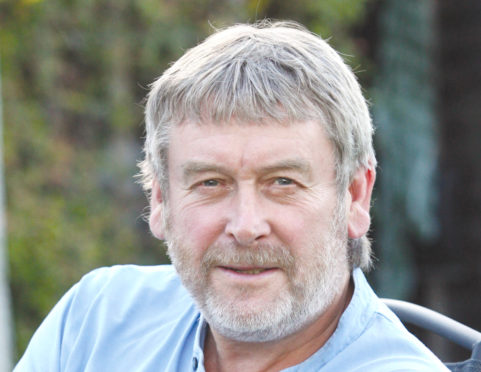Two days till the most important election in generations.
In the Highlands, there has been media focus on the Ross, Skye and Lochaber seat. It has been held by the SNP’s Ian Blackford since 2015, when he unseated the late Charles Kennedy, taking a remarkable 48.1 % of the vote in a seven-cornered fight.
Two years later, in Theresa May’s “strong and stable” election, that dropped to 40.3% in a six-way fight. The Tory was second then, but the Liberal Democrats have made it a top target.
They will have their work cut out. Mr Blackford has proved an able SNP Westminster leader, while the Mother of Parliaments suffers its prolonged Brexit birthing pains.
There has been talk of unofficial pacts, with Tories and Labour fighting relaxed campaigns. This to give Lib Dem Craig Harrow a better chance of taking the seat back from the SNP. The pact has been publicly denied.
Whatever the truth, the Lib Dems’ anticipated surge of Euro-Remain support nationally seems hard to detect. Indeed, some poll predictions have Jamie Stone fighting to keep the Caithness, Sutherland and Easter Ross seat for the party.
It will be different across the Pentland Firth. Alistair Carmichael, having survived the SNP’s 2015 tidal wave by just 817 votes, restored the natural Lib Dem order to the northern isles two years later with a majority of 4,563.
It could well be there is no change in the Highlands and islands. It’s easy, therefore, to forget that, in 1992, the UK’s only genuinely four-way marginal was in the Highlands.
Labour, the SNP and the Tories all had realistic ambitions to take out Liberal-Lib Dem stalwart Sir Russell Johnston in Inverness, Nairn and Lochaber. He had been in the House of Commons since the 1964 general election.
There were three recounts, with Mr Johnston just holding on with 26% of the vote and by 430 votes. Labour got 25.1%, the SNP 24.7% and the Tories 22.6%. Sir Russell didn’t stand in 1997, when Labour’s David Stewart took the seat as Tony Blair came to power.
That 1992 count was also remarkable for how long it took.
A helicopter carrying the ballot box from Knoydart had an argument with some trees at Inverie. The box had to go by lifeboat to Mallaig, then by police car to Inverness. The result wasn’t declared until just before 6am.
Since then, outlying ballot boxes from the likes of Eigg and Knoydart are taken by ferry.
Argyll and Bute, which has 23 inhabited islands, the most of any seat, is traditionally counted in Lochgilphead the next day.
But whatever the arrangements, there will be too few votes to count in the Highlands and across the whole UK.
Two-and-a-half centuries ago, North American colonists and Britain were preparing to go to war over the principle of “no taxation without representation”.
This followed Britain’s imposition of the Stamp Act, to raise money to pay for its North America-based army. It was a tax on all legal and official papers and publications circulating in the colonies. It also included fees for playing cards and dice.
The colonists claimed that it went against the British constitution to be forced to pay a tax to which they had not agreed through representation in Parliament.
The Act was repealed, but the same day, the Declaratory Act was passed, stating the British Parliament had the right to legislate for the colonies in all cases.
The seeds of war, and indeed the USA, were thereby sown.
Although the colonists were seeking representatives they had a say in electing, the fundamental democratic right they raised is still not being recognised in this election.
Today, there are about 1,400,000 UK 16 and 17-year-olds not allowed to vote on Thursday. This is despite them having to pay income tax if they’re earning more than the personal allowance of £12,500 this financial year or £11,850 in the last.
If they are UK residents liable to pay tax to the government, then they should be able to vote for or against those who would spend it. Comparatively few may earn more than the tax-free limit. That does not matter. Adults in the same position can vote.
It was right to enfranchise 16 and 17-year-olds for the Scottish independence referendum in 2014. They were given a chance to say where their taxes should go.
It was right for the Scottish Parliament the following year to introduce votes at 16 for all Holyrood and local elections in Scotland, as both involve tax-raising.
And the Welsh Assembly followed this lead just a couple of weeks ago.
Exactly the same argument should have been applied to the near 3,000,000 EU citizens living in the UK. Many can vote in European and local elections, but not for Westminster. They pay tax, therefore should have a right to vote for those who represent them.
The fact that the Scottish Government can now set a different rate of income tax is irrelevant. Income tax is not a devolved tax. Neither is national insurance, nor VAT.
The continued exclusion of these groups undermines the democratic legitimacy of general elections.
David Ross is a veteran Highland journalist and author of an acclaimed book about his three decades of reporting on the region
